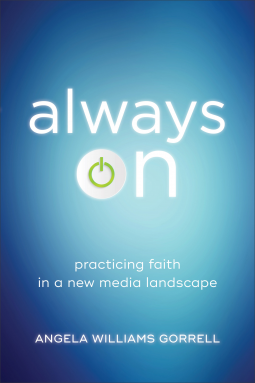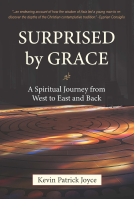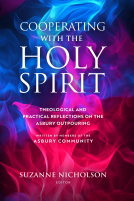
Always On
Practicing Faith in a New Media Landscape
by Angela Williams Gorrell
This title was previously available on NetGalley and is now archived.
Send NetGalley books directly to your Kindle or Kindle app
1
To read on a Kindle or Kindle app, please add kindle@netgalley.com as an approved email address to receive files in your Amazon account. Click here for step-by-step instructions.
2
Also find your Kindle email address within your Amazon account, and enter it here.
Pub Date May 21 2019 | Archive Date Oct 18 2019
Baker Academic & Brazos Press | Baker Academic
Talking about this book? Use #AlwaysOn #NetGalley. More hashtag tips!
Description
Many of us are "always on"--scrolling through social media, checking email, or searching the web. New media spaces can be sites and instruments of God's unconditional love, but they can also nurture harmful conditions and become sources of anxiety, jealousy, and despondency. Always On provides useful tools for helping students and congregants understand the world of social media and engage it faithfully, enabling Christian communities to address its use in constructive, pastoral ways. The book includes discussion questions and sample exercises for each chapter.
Advance Praise
“Our increasingly digitized lives provide both profound brokenness and opportunities for our shared humanity to be diminished. However, they also provide glorious possibilities to be more present with those who suffer from the ills and injustices of the world. In this inspiring new work, Angela Gorrell offers a compelling Christian vision of the good life within the landscape of new media. Incisively attentive to malformed visions of the good life offered by various kinds of new media, Gorrell contrasts those visions with the life and ministry of Jesus in ways that equip and empower Christians to engage in intentional practices that align with Christ’s transformative and healing vision for a new social order. Gorrell demonstrates that the new media landscape is neither simply life-negating nor simply life-affirming, and that it’s possible to nurture a Christian hybrid existence that reflects God’s nonviolent and compassionate love for creation today and into the future.”—Deanna Thompson, author of The Virtual Body of Christ in a Suffering World
“This book couldn’t be more timely. More and more our lives and identities are being worked out in digital spaces that are always on. So we are asked to be always on, performing and reforming our identities, seeking likes and retweets to confirm our being. What does this mean for formation into the life and death of Jesus Christ? What does it mean for the pastoral task of building community? Angela Gorrell takes up the challenge in Always On. This is an exciting, deep, and well-written project that promises to get you thinking. Dive in!”—Andrew Root, Carrie Olson Baalson Professor of Youth and Family Ministry, Luther Seminary; author of The Pastor in a Secular Age
“In Always On, Angela Gorrell takes us straight into the new media abyss that we all face every day. Gorrell’s background as a pastor, theologian, and new media researcher invites us to consider how new media affects every aspect of our lives and how easily we can find ourselves lost in the process. She doesn’t give in to the temptation to blame social media but rather helps us recognize how little attention we give to the ways we allow it to consume us. This is a helpful, practical book on one of the most pressing and real-life struggles we experience today.”—Chap Clark, author of Hurt 2.0 and Adoptive Church; pastor of St. Andrew’s Presbyterian Church, Newport Beach, California
“Always On considers how technology and social media impact identity and community formation. Exhibiting theological reflection for our sound-bite culture, Gorrell perceptively explains new media’s ability to malign and abet both hope and harm. More than a simple description of the new landscape, Gorrell examines the narratives that shape us in a way that both acknowledges harmful assumptions and serves as an invitation to interested conversations with those in the widest sphere of influence—virtual and visible conversation partners. Critical of how easily we yield to deficient interactions through new media, Gorrell argues for practices of righteousness, peace, and joy that exist online and in person. Fresh, contemporary, and practical: the language of this book is twenty-first century; the Christian call is first century; the promise of recovering humanity’s capacity to bear the image of God in the world is eternal.”—Joy J. Moore, ecclesial storyteller and lead pastor, Bethel United Methodist Church, Flint, Michigan
Available Editions
| EDITION | Other Format |
| ISBN | 9781540960092 |
| PRICE | $25.00 (USD) |
| PAGES | 208 |
Links
Featured Reviews
 Conrade Y, Reviewer
Conrade Y, Reviewer
The new media is defining us in more ways than one. This is not just social media. It is a new age of media technology and people interactions that revolutionizes the way we work, play, and live. Social networking sites like Facebook and Twitter have changed the way we communicate with one another. People express themselves using online platforms such as YouTube and Instagram. Consumers buy and sell on sites such as eBay and Amazon while many play online Internet games with people they have never met face to face. This is the face of the new media. Like any phenomenon or change of social landscape, there are plus and minus aspects. It has the potential to communicate and to bring about a lot of good in brand new ways. Unfortunately, the downsides are also huge. In order to ensure we have a healthy kind of hybrid, that is, to maximize the positive and minimize the negative, it would be a great way forward. This could be done through "interested conversations" that enables meaningful dialogue that are both "theologically reflective" as well as "Spirit-guided." Author Angela Gorrell brings us through a fascinating journey through the new media terrain. It is an ambitious attempt to connect ancient faith with modern media. Like our modern multimedia folks, the early church communicate with one another through many senses such as "written, oral" and "reading and singing." The common theme is communicating. The difference is the specific ways we communicate the written, the spoken, and the various dialogue avenues. While that might be true, it is also true that social media has been mixed with fake news and "empty and shallow" talk. This is a legitimate concern but the potential for Christians to influence worldviews is too big to be ignored.
Gorrell takes special care not to presume anything but to go through the basics of what it means to stream, to scan, to friend, to post, to follow, to tag, etc. The key thing is to understand the potential for meaning-filled conversations. Gorrell shows us that it is possible to maintain healthy and constructive conversations through new media. One major way is through the telling of stories. Unfortunately, many stories are one-sided or partial. They only tell the side of the story that people want others to know. She hits the mark by pointing out the subjectivity of such story-telling. By identifying and highlighting the plots and sub-plots of our stories, we are challenged to go beyond cultural norms toward a more holistic vision of what it means to be human. We need to challenge the underlying cultural norms of self-reliance, superiority of desires, and how we trap ourselves through hypocrisy and a lack of honesty to deal with the real issues with ourselves. It is here that Gorrell raises the very thesis of her book, that an "always on" environment stimulates an "always on" individual to become desensitized to one's real sense of need. We are fallible but technology deceives us about infallibility by making us think we are more right than we actually are. We desire meaning so much that we often look for them in all the wrong places. We need to be watchful about what we post and careful about ulterior motives behind the media providers. That said, research has also shown that the way people use new media gives us an insight into their psychological profile. Even if we cannot solve all the problems created by new media, we can at least understand more about our human selves. By sharpening our understanding of how these new media work, we are more able to understand both the potential and the perils of using them. The chapter on "online Jesus" is probably the one that many believers would be interested in, how to be a witness online. Gorrell even shows us the way we could use the lectio divina online!
My Thoughts
There are three reasons for the need to learn about this new way of life and why this book is significant. Firstly, it is the new way we live. How we communicate and relate to one another is affected by this new media. Whether we are using social networking sites, producing user contents on YouTube, buying stuff on Amazon or Ebay; or playing on game sites on the Internet, we are essentially participants in this new world of technology and media. Even if we manage to avoid using any of these media, our friends, loved ones, business associates, clients are users. So it makes sense to learn and understand this new media lingo.
Second, all of us need help with regard to understanding what the media is trying to do. Marshall McLuhan's thesis is so apt, that "The media is the message." Not only is the new media changing the way we live, it is also changing us in more ways than one. If that is so, why don't we adapt and adjust. Humans are adaptable people. Gorrell is doing us a favour by doing the heavy-lifting of explaining what the new media is and their unique characteristics and how we can use them appropriately. For believers, though they often say that they want to be salt and light of the world wherever they go, saying is one thing, doing is yet another. Books of this nature will be a valuable guide to help us navigate the complexities of the new media landscape. Just knowing their strengths and weaknesses, what they can or cannot do
Third, with the acceleration of advancement of science and technology, the examples and platforms described inside would be outdated pretty quickly. Will Facebook and Twitter still be around in ten years? Will there be new jazzier and more hip media in the future? There is no assurance that even half of our modern media platforms would survive into the next decade. Point is, the specifics may differ, but the philosophy and path toward human flourishing remain an evergreen topic. We are all trying to improve our lives all the time, to do things better. When reading this book, focus not on the specifics or technical details of the digital media, but on the people using it. Use whatever media use as a window into the lives of people. It is not simply a witch-hunt to identify who is right or who is wrong. The Russian novelist, Alexander Solzhenitsyn has famously said: "The battleline between good and evil runs through the heart of every man." Perhaps, the same can be said of new media, that the way people use new media could very well be the way it exposes the Dr Jekyll and Mr Hyde in all of us.
Angela Williams Gorrell holds a PhD in Practical Theology from Fuller Theological Seminary. She is an ordained minister with Mennonite Church USA. She creates surveys, leads focus groups, conducts case studies, manages metrics and evaluation, and collects and analyzes social network data for organizations.
Rating: 4.5 stars of 5.
conrade
This book has been provided courtesy of Baker Academic and NetGalley without requiring a positive review. All opinions offered above are mine unless otherwise stated or implied.
 Rosa S, Educator
Rosa S, Educator
The author views 4 general categories of new media - social networking, user content, marketing/trading sties, and gaming - and their implications for the Christian community. Many of our interactions now take place online.
Gorrell looks at ways people engage online, as well as how to maximize the opportunities in communities of faith. Many of our friendships are found, broadened, and developed through media. Thus, God, who is present with us, is present in those interactions.
This is a book for community leaders and thinkers. How do we integrate our journey of faith with all the opportunities and challenges media puts on our phones and laptops, our businesses and homes? Sharing our human experience - with its true nature of crises and joys - lets believers bring Christ into real (no performed) conversations that are happening 24-7 with the world around us. Recommended.
 Sergiu P, Reviewer
Sergiu P, Reviewer
There is definitely a lot of helpful discussion in this book. The author attempts a balanced approach, showing both the good and bad ways that technology is and can be used.
At the same time, the author seems to be all about human flourishing to such a degree that Christ's return seems not only irrelevant but pointless in her worldview.
She also has random instances where her point is off. An example is where she talks about some guy who said that women are at fault for making men lust, and she went and aggressively responded to him to prove that he's wrong and men are to be blamed for lusting. Then she goes on to say that her aggressiveness was wrong but she still believes her point was correct.
First of all, it doesnt take a genius to notice that the bible calls out both men and women for contributing to lust, but even before talking about that, this aside was irrelevant to the book, seems like the author was just trying to convince herself that she did the right thing.
 Erica W, Reviewer
Erica W, Reviewer
Today, so many of us are 'always on'!! With an incessant need to check for new messages, scroll through our Twitter and IG feeds, we miss out on what life has to offer us in real life!
The other has provided tools to help us realize that while social media and the internet can be tools for distraction, they can also be vehicles for the Christ's love.
Highly recommended for family reading and for use in Christian schools and youth groups.
Readers who liked this book also liked:
Rev. Dr. Suzanne Nicholson
Christian, Nonfiction (Adult), Religion & Spirituality


















